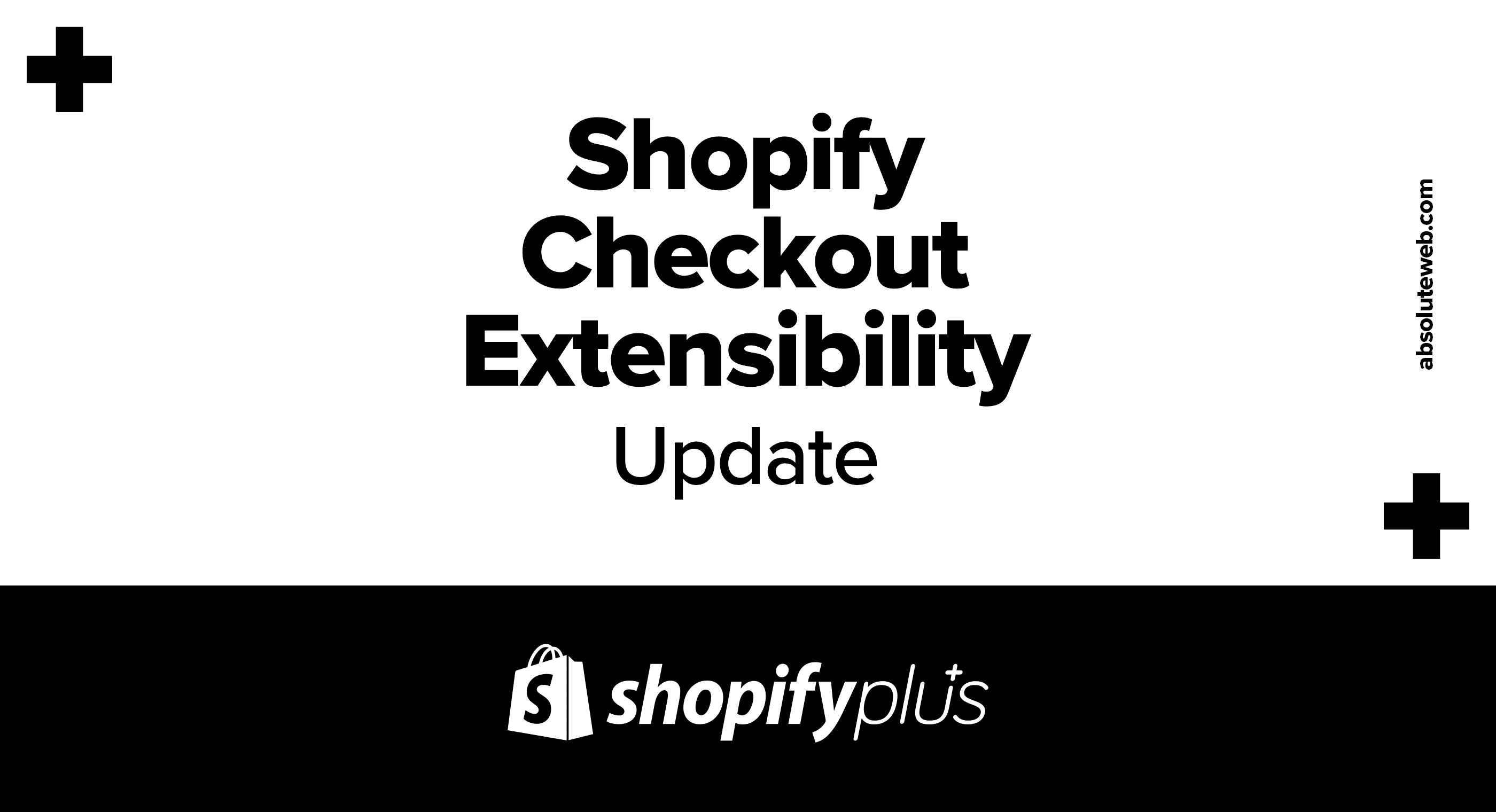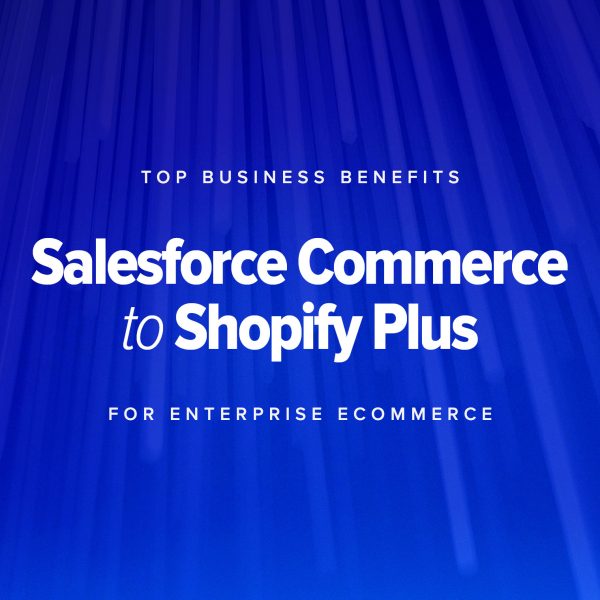
What Shopify’s Checkout Extensibility Update Means for Shopify Plus Customers Using Customized checkout.liquid Files or Shopify Checkout Scripts
Shopify Plus, an enterprise-level version of the popular Shopify ecommerce platform, offers a range of features and benefits which provide a great deal of value to ecommerce merchants who are in the process of scaling their online presence. Merchants primarily gravitate towards Shopify Plus in order to unlock deeper customization tools, lower processing fees for the included Shop Pay payment processing system or third party payment processor, dedicated support options, and additional resources for scaling up.
Shopify customization traditionally referred only to the user’s experience up to, but not including, checkout and post-checkout pages. Shopify’s unified checkout, which historically was customizable through a single file named checkout.liquid, gave online sellers a familiar and optimized process for entering their billing and shipping details. However, the platform only allowed augmentation of both experience and functionality with hard limitations.
Benefits of Shopify’s Checkout Extensibility Update
In August of 2022, savvy merchants whose unique needs and circumstances demanded additional flexibility in the checkout process, received a bit of good news from Shopify with the announcement and release of Checkout Extensibility. This suite of advancements included new tools that merchants and agency partners could leverage towards increasing opportunities for branding, data collection via the ability to embed custom fields at different extension points around the checkout experience, as well as enabling the use of Shopify Functions, which are a replacement for Checkout Scripts. These options can be used to provide:
-
Automatic Discounts
Allows the application of a discount code, or a discount without a code, contextually based on the items in the cart (i.e. a buy-one-get-one-free promotion).
-
Conditional Shipping Rate
Modifies shipping rates based on specific conditions, such as the shipping destination or the total order value. This can help businesses provide more accurate shipping rates and improve the customer experience.
-
Custom Fields & Messaging
Provides additional product options or special instructions for shipping. This can help businesses collect important information from customers during the checkout process.
-
Custom Payment Methods
Adds the ability to include custom payment methods or payment gateways that are not natively supported by Shopify.
Recently, these tools were further expanded through the addition of drag-and-drop checkout editing capabilities which were formally announced on February 9, 2023 in Shopify’s Winter 2023 Edition. Merchants now have the ability to reorder existing field structures, add new data collection abilities, and bring the experience more in-line with their brand through an intuitive, powerful, and no-code set of management tools. Checkout Extensibility now also encompasses:
-
Plug-and-Play Checkout Apps
which may be positioned in the experience via the new drag-and-drop tools.
-
Checkout UI Extensions
which allow developers to create unique and specific interface options within the checkout experience. These extensions are able to directly extend product information, shipping, payment, order summary, and Shop Pay options.
-
Shopify Functions
give developers the ability to customize checkout logic and workflow providing mechanisms to affect product delivery, order routing, bundle handling, validation routines, payment options, and discounting.
-
Post-Purchase Extensions
give merchants tools to add informative tools, data collection, or even upsell purchasing opportunities even after the initial purchase has been completed.
With these advancements, however, come several noteworthy side effects. Customizations made to Shopify’s trusted checkout.liquid file, including third-party tracking scripts, will no longer be supported beginning August 13, 2024. Tracking scripts are an ecommerce staple and necessary to gaining robust performance and behavioral analysis in platforms like Google Analytics. Shopify is urging merchants to upgrade their stores’ tracking abilities through Shopify’s proprietary Web Pixel Extension API, Shopify Pixel Manager tools, or third party Web Pixel Extension Apps.
Further, support for Shopify Checkout Scripts will be discontinued in favor of the new Checkout Extensibility and apps. One of the alluring promises of the Shopify Plus platform is to provide many teams with low-code or no-code pathways to success and the implementation of specific business logic. Manual manipulation of critical business processes and files, like checkout.liquid are in opposition to this core principle.
The newly expanded Checkout Extensibility tools provide many sought-after enhancements within the familiar app-based environment, but also protects the platform itself from edge cases where user customizations or third party code conflicts could negatively impact the user experience, or worse, open potential avenues for fraud and misuse.
Migrate to Shopify’s New Checkout Extensibility
Migrating existing customizations from Shopify’s checkout.liquid file or Shopify Checkout Scripts into new Checkout Extensibility compatible apps will most likely require a development agency. As a Shopify Plus Agency, Absolute Web’s team of dedicated Shopify experts can help your business transition before these tools reach their functional end of lifespan in 2024. Contact us today!
More Articles
EEE Miami 2024: A Monumental Success
The buzz of EEE Miami 2024 has finally settled, leaving…
Read more
Enterprise Ecommerce: Benefits of Migrating from Salesforce ...
In the fast-evolving landscape of e-commerce, selecting the right platform…
Read more
3 Ways to Personalize the Customer Experience
In today’s ecommerce landscape where competition is fierce, standing out…
Read more
Ecommerce Growth Strategy Over Hype: How Not ...
If you’re in ecommerce, there’s no getting away from the…
Read more
Top Ecommerce Conferences and Marketing Events to ...
In a rapidly evolving industry like ecommerce, staying ahead of…
Read more
Inc. 5000 & Absolute Web: Celebrating 6 ...
It’s with immense pride and gratitude that we announce Absolute…
Read more
The Most Inspiring Ecommerce Event. EEE 2023 ...
On February 23rd, the second edition of Ecommerce Experience Evolution…
Read more
Absolute Web Hosts Miami’s Biggest Ecommerce Event ...
Absolute Web Has Partnered with Recharge, Signifyd, Feedonomics, Gorgias, BigCommerce,…
Read more
Social Feed








